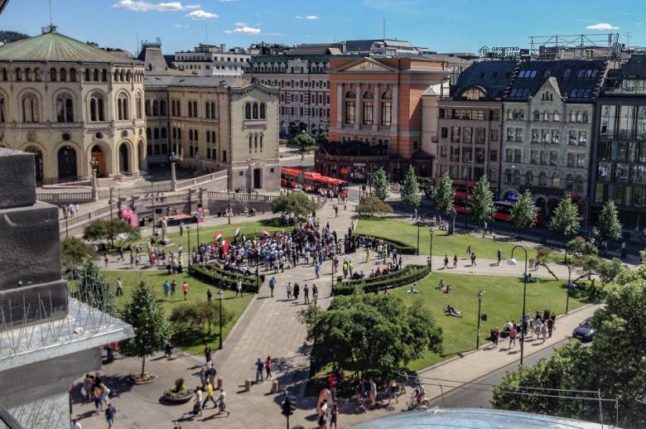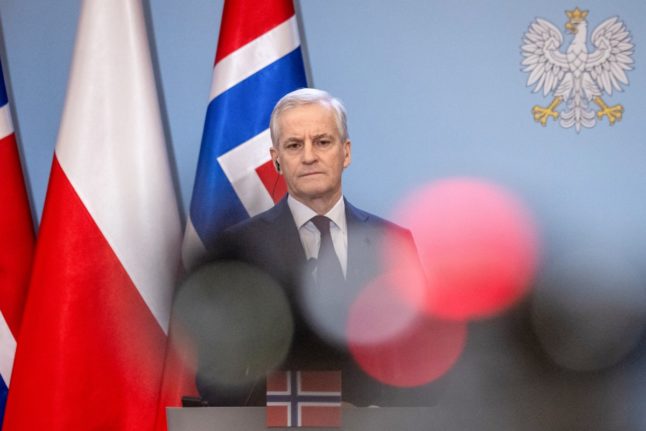In light of the cost of living and energy crises in Norway, Norway’s parliament recently announced it would cut back several benefits that members of parliament have previously enjoyed.
In October, as part of a broader effort to cut electricity expenditure, the parliament announced it would be closing the sauna.
Just last week, as the newspaper Aftenposten reported, the parliament’s administration stated that MPs would also lose the privilege of charging their electric cars for free at work from early 2023.
“The decision was based on the fact that it is reasonable to pay for charging private electric cars at the Storting,” a member of the parliament’s administration told the newspaper.
At the same time, parking in the Storting garage is – and will remain – free of charge.
While MPs are losing some of the benefits associated with their positions, a number of other benefits that they enjoy will remain in place.
The Local reached out to the Norwegian parliament’s administration to get the information necessary to compile the full list of benefits that are available to MPs in Norway today.
Which non-salary work benefits do MPs in Norway enjoy?
In an email to The Local, the administration of the Storting stated that Norwegian MPs have access to a broad range of benefits, from insurance and courses to priority places in kindergartens and subsidized meals at canteens – and many more.
A detailed list of benefits, as provided to The Local by the parliament’s administration, is presented below:
News subscriptions, broadband, and landline telephone: Members of parliament may have their digital news service subscriptions covered, as well as home broadband and landline telephone expenses.
Insurance benefits: The Storting covers a number of different insurance schemes for MPs. As is the case with all employers in Norway, the Storting covers the statutory insurance schemes to which every Norwegian employee is entitled. Such statutory insurance schemes are covered, tax-free, by the Storting.
MPs’ travel insurance, both for work-related and private travel, is also covered. MPs are required to pay tax on 50 percent of the insurance premium related to private travel.
The Storting also covers group life insurance and personal accident insurance schemes. MPs are required to pay tax on these benefits.
Courses: The Storting covers course fees and travel, board, and accommodation expenses for MPs enrolling in English language training courses in the UK. Such courses are available during the summer recess for MPs who can document a need to improve their English language skills.
Priority kindergarten places: MPs may also get priority kindergarten places for their children. The Storting does not cover the cost of kindergarten, but having such a priority place can be considered to be a financial benefit for MPs.
Other benefits available to MPs include:
- Covered expenses of glasses adapted to work on a computer screen.
- Free access to an in-house training room and gym.
- The Storting’s canteens are subsidised.
- MPs may contact the Storting’s in-house pastor if the need should arise. The pastor is employed by the Storting on a part-time basis.
A general overview of MPs’ pay, allowances and other beneficial arrangements can be found here, in English.
How much money from Norwegian taxpayers is spent on covering the work benefits of MPs?
The Local wanted to know how much money is paid to cover these non-salary work benefits of members of the Norwegian parliament in a year.
Unfortunately, the parliament’s administration claims it doesn’t have access to these figures.
“We regret to inform you that we do not have access to these figures. Some of the schemes mentioned above do not apply exclusively to the MPs. For example, the prices are the same for all those who use the parliamentary canteens – MPs, members of staff, guests or journalists – and purchases are not individually registered.
“Since the total amount covers a wide range of different schemes and arrangements, the figures you have asked for would be extremely difficult to itemise,” the administration stated.
Energy saving measures
Furthermore, the administration noted that none of the financial schemes mentioned above would be changed as a result of the rise in energy prices.
“At present, no energy-saving measures have been considered other than the ones that were adopted in October, such as those relating to the charging of electric cars and closure of the saunas.
“When these measures were introduced in October, a series of other energy-saving measures were also implemented.
“This included lowering the in-house thermostats and extending the practice of reducing temperatures and turning off lights and ventilation when areas are not in use,” the administration of the Storting concluded.



 Please whitelist us to continue reading.
Please whitelist us to continue reading.
Member comments